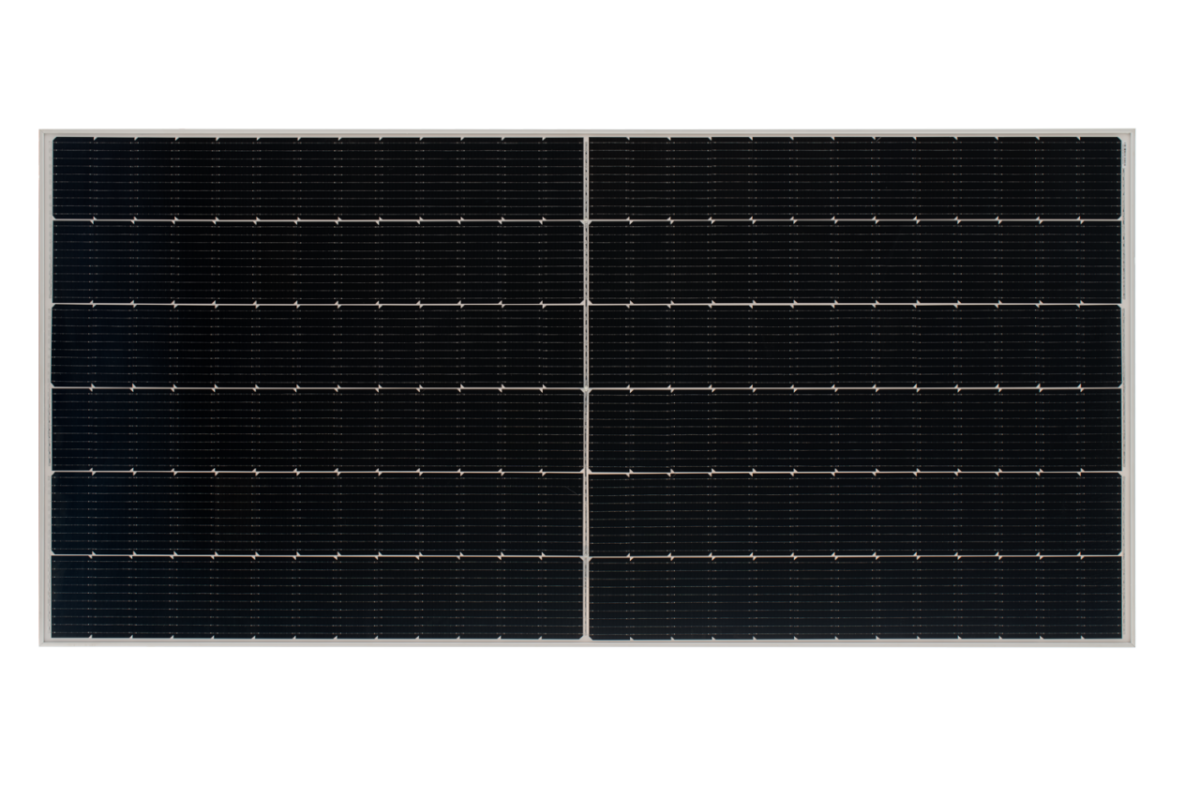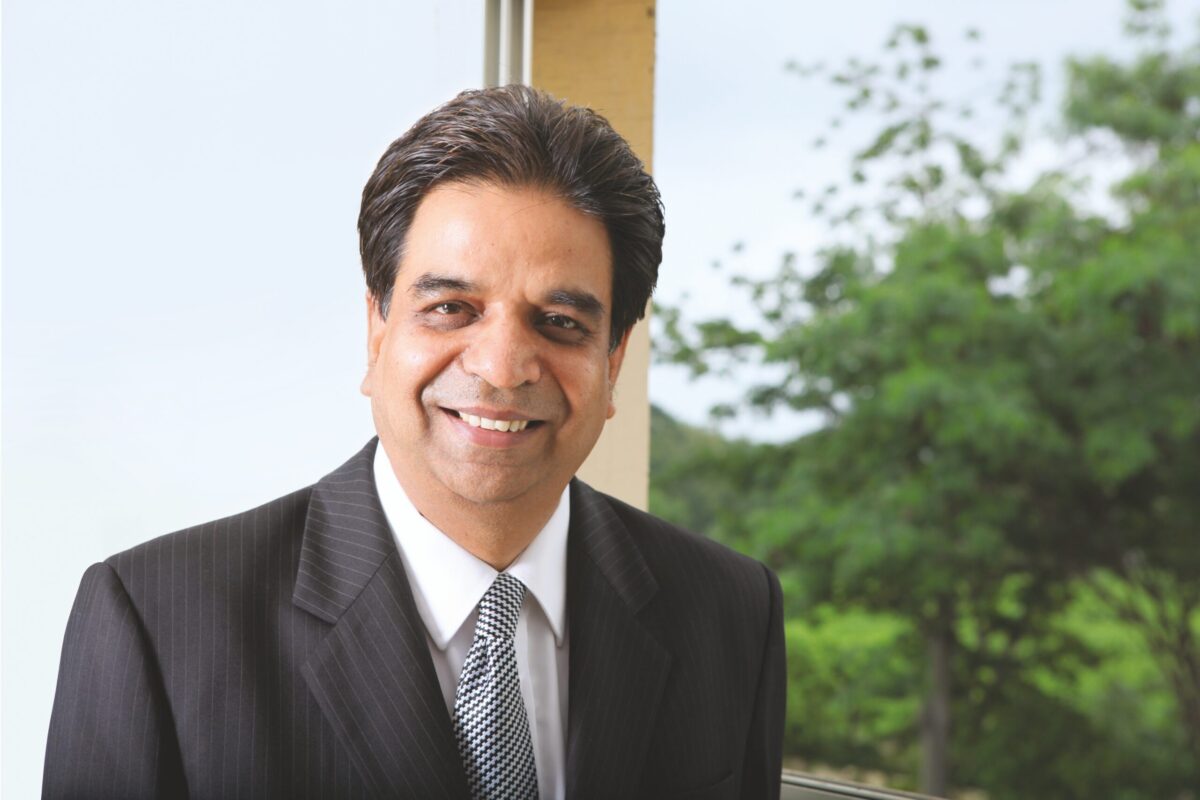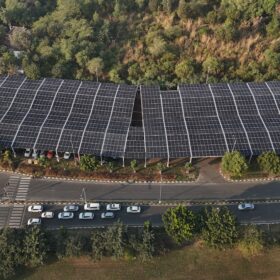JinkoSolar said that the new panels are based on its n-type TOPCon monocrystalline cell tech, which boast a 24.79% conversion efficiency rate. The modules has a reported efficiency of 22.3%, with a 78-cell design. The company did not reveal any other technical details.
In an earlier statement, JinkoSolar said the new PV modules are based on HOT design and tunnel-oxide passivating contact (TOPCon) tech. It applied several technologies to reach the reported cell efficiency level, including an advanced diffusion system, surface passivation, and an advanced anti-reflection technique. Material upgrades were also integrated into the cell process, the company said.
“The record-breaking monocrystalline silicon solar cell will be gradually applied to product production,” JinkoSolar said in mid-July.
In addition to the new 610 W panels, the company also presented a new BIPV module series with power output of 550 W. Its new “PV + Architecture” line is available in different colors and levels of translucence, the manufacturer said, without revealing any other product details.
In June, JinkoSolar VP Dany Qian told pv magazine that the Pro Tiger module series will become the company’s main revenue contributor in 2022, surpassing its Tiger 475 W panels. The Pro Tiger series of PV modules was unveiled in mid-May.
In a separate development, Chinese bifacial PV module specialist Jolywood launched a new n-type panel series with a power output of 570 W to 615 W at the SNEC PV Power Expo.
Called Niwa, the series has a reported efficiency of 22.1%. It consists of three different products dubbed Niwa Super, Niwa Pro and Niwa Black. All of them rely on the company’s NTOPCon cell technology.
“This is our new Niwa second-generation product which has made significant improvements and enhancements in terms of cell efficiency and module technology compared to the previous generation of Niwa products. The cell efficiency increased from 23.2% to 24.5%, and the mass production efficiency averages 24%,” said the company’s deputy general manager, Zhifeng Liu. The company’s second-generation Niwa products have the core advantages of “three highs and three lows”, namely high efficiency, high bifaciality, high reliability, low degradation, and no LID/LeTID and a low temperature coefficient, Liu explained, adding that it would be “the top photovoltaic module on the market in the future.”
The series also features large-size silicon wafers, 11 busbars, half-cells and a nano-alloy transparent backsheet. Its weight is 12.1 kg per square meter. A multilayer anti-reflection film composed of three different dielectric layers, matched with a special coated glass to present such a beautiful appearance, was used as cell coating. No more technical details were revealed.
Belgian micro and nanoelectronic research center Imec and Jolywood achieved a 23.2% front-side conversion efficiency for an n-PERT solar cell in April 2019. Imec said the result was certified, with 12 M2-sized (244.3 cm²) cells measured by the solar cells laboratory at the calibration and test center (CalTeC) of Germany’s Institute for Solar Energy Research (ISFH). The cells’ effective efficiency was estimated at around 26% after exposing it to standard front illumination conditions together with 0.15-sun rear illumination, Imec scientists said. They said CalTec certified an average reverse current of -0.4 A (at -12 V), which should provide excellent breakdown characteristics.
This content is protected by copyright and may not be reused. If you want to cooperate with us and would like to reuse some of our content, please contact: editors@pv-magazine.com.









By submitting this form you agree to pv magazine using your data for the purposes of publishing your comment.
Your personal data will only be disclosed or otherwise transmitted to third parties for the purposes of spam filtering or if this is necessary for technical maintenance of the website. Any other transfer to third parties will not take place unless this is justified on the basis of applicable data protection regulations or if pv magazine is legally obliged to do so.
You may revoke this consent at any time with effect for the future, in which case your personal data will be deleted immediately. Otherwise, your data will be deleted if pv magazine has processed your request or the purpose of data storage is fulfilled.
Further information on data privacy can be found in our Data Protection Policy.